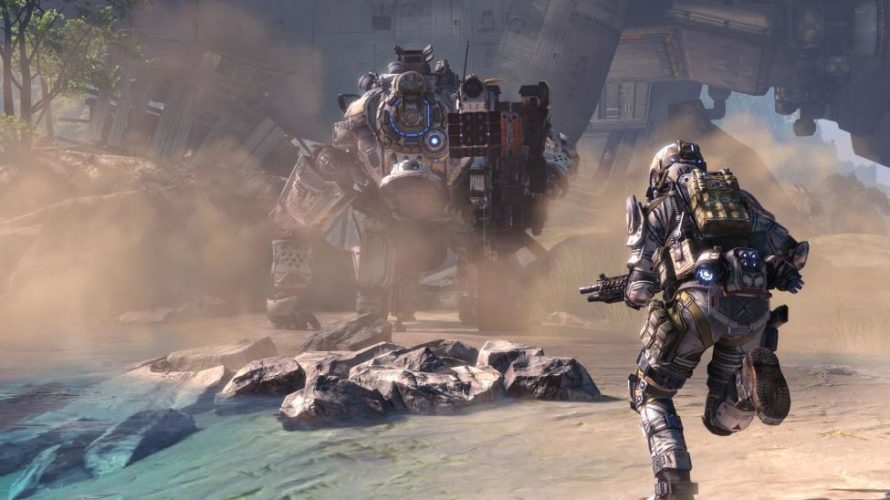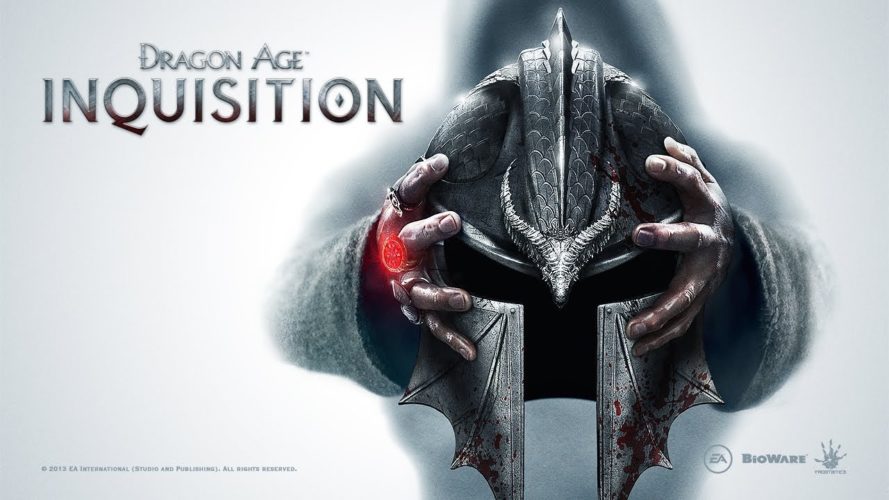Mainstream
Mass Effect 4: Which Main Characters Will Return in Case of a Sequel?

Mass Effect 4 is still far ahead from being released and as so, the upcoming plot and timeline are still unknown, however the sequel logic has been the most favorite choice amongst players. In that case, if BioWare actually chooses to make a development of the Mass Effect 3 events, then there’s a great chance that many old characters will be seen again. But not everyone has the same chance to return, in fact, some characters have a really low probability to return to the next Mass Effect.
I’ve recently done a structural preview for Dragon Age Inquisition, revealing which old companions have the highest probability to return. I’ll be doing a similar preview here using logical variables: species lifespan (SL); appearance in the previous games (APG); relevance in the previous games’ storyline (RPG); Shepard’s squad member (SC). I may add an extra variable in certain cases, such as death probability. The first variable is very important since most of the characters won’t be able to live enough if the sequel is too far into the future, the second and third variables are significant because the more important the character was in the trilogy, the higher is his/her chance to return. Finally, the last point is duo to the fact that BioWare has shown that squad mates always return.
Note: 1 is bad, 2 is decent and 3 is good. I’m changing the probability logic to 3/3 from 2/2 exactly because Mass Effect had three previous games.
Let’s review which Mass Effect main characters have the highest probability to be seen in the fourth game, if it’s to be a sequel.
 1. Admiral Steven Hackett (Human, ME 1, 2 & 3)
1. Admiral Steven Hackett (Human, ME 1, 2 & 3)
Steven Hackett has been a vital figure in the Mass Effect world. He was always behind the development of most large scale events in the story and he was the one recommending Shepard for the first human spectre. However, by the end of ME3 he appears to be old enough, which may indicate that he won’t be able to return to a possible sequel.
Probability to Return: 2/3 (SL) + 3/3 (APG) + 3/3 (RPG) + 0/3 (SC) (-2 Death Possibility) = 50% – Hackett May Return
 2. Aria T’Loak (Asari, ME 1, 2 & 3)
2. Aria T’Loak (Asari, ME 1, 2 & 3)
This pirate queen commands the space station called Omega and she is willing to do anything to keep her throne from other factions. Despite her ruthless personality, she is able to distinguish good from evil. Aria will surely stick around for a long time and if the next ME will feature Omega somehow; it’s inevitable to do not summon Aria T’Loak.
Probability to Return: 3/3 (SL) + 2/3 (APG) + 2/3 (RPG) + 0/3 (SC) +1 (Active Member in Several ME Comics) = 66% – Aria Will Probably Return
 3. Ashley Williams (Human, ME 1, 2 & 3)
3. Ashley Williams (Human, ME 1, 2 & 3)
Ashley has been working for the Alliance for a long time and due to her successful work she achieves the rank of Lieutenant Commander in ME3. If she doesn’t die during the ME1 and ME3 events, she has decent chances to return, she’s still young and a very strong soldier.
Probability to Return: 2/3 (SL) + 3/3 (APG) + 2/3 (RPG) + 2/3 (SC) – 1 (Death Possibility) = 66% – Ashley Will Probably Return
 4. David Anderson (Human, ME 1, 2 & 3)
4. David Anderson (Human, ME 1, 2 & 3)
Anderson was surely one of the major characters in the trilogy finale and he helped Shepard reaching the Crucible room, thus saving the whole galaxy from perishing. However, his heroic acts cost him his own life and as so, he won’t be coming back from the grave.
Probability to Return: 2/3 (SL) + 3/3 (APG) + 3/3 (RPG) + 0/3 (SC) – 8 (Anderson Dies in ME3) = 0% – Anderson Won’t Return
This war journalist showed her great reporting skills during ME3. She reported most of the war episodes lead by Shepard and how this commander saved the galaxy from the reapers. She was never seen in previous games and her importance in ME3 was minimal, which may indicate that she won’t return at all.
Probability to Return: 2/3 (SL) + 1/3 (APG) + 1/3 (RPG) + 0/3 (SC) = 33% – Diana Probably Won’t Return
 6. Dr. Karin Chakwas (Human, ME 1, 2 & 3)
6. Dr. Karin Chakwas (Human, ME 1, 2 & 3)
The former medic of the Normandy has been around since the beginning of the journey. Chakwas has helped the whole crew with their injuries and other problems but her age may not allow her to make it to the fourth game.
Probability to Return: 2/3 (SL) + 3/3 (APG) + 1/3 (RPG) + 0/3 (SC) – 1 (Death Possibility) = 42% – Dr. Chakwas Probably Won’t Return
EDI was designed to be an intelligent spy for Cerberus but things didn’t go as intended. This program developed self-awareness and stopped leaking information to its former creators in ME2. She achieved a certain degree of humanity and is now closer to a geth individual than to a computer program. I believe she’ll return, especially now that she has a robotic body.
Probability to Return: 3/3 (SL) + 2/3 (APG) + 3/3 (RPG) + 1/3 (SC) = 75% – EDI Will Most Likely Return
 8. Garrus Vakarian (Turian, ME 1, 2 & 3)
8. Garrus Vakarian (Turian, ME 1, 2 & 3)
Garrus has be a constant character and squad member in the ME series. Besides fighting along with Shepard he had a prestigious spot in the C-Sec Alliance ranks. I’m quite sure that Garrus will keep helping everyone rebuilding after the reaper invasion, even with Shepard gone he won’t abandon his values.
Probability to Return: 2/3 (SL) + 3/3 (APG) + 3/3 (RPG) + 3/3 (SC) = 92% – Garrus Will Most Certainly Return
Jack has redeemed herself. She changed for the good of herself. From a super dangerous criminal she became a dedicated teacher taking care of biotic teenagers. She may be seen in the upcoming game, the galaxy will still need her services after all.
Probability to Return: 2/3 (SL) + 2/3 (APG) + 2/3 (RPG) + 1/3 (SC) = 58% – Jack May Return
 10. Jacob Taylor (Human, ME 2 & 3)
10. Jacob Taylor (Human, ME 2 & 3)
Jacob found true love with Dr. Brynn Cole and during ME3 he reveals that they’re going to have a baby and he wants to call him/her Shepard. It’s to be expected to see Jacob of his unborn child in the fourth game.
Probability to Return: 2/3 (SL) + 2/3 (APG) + 2/3 (RPG) + 1/3 (SC) = 58% – Jacob May Return
James is a popular character in several ME comics and his role in ME3 was quite decisive, especially when it came to defeat hostile forces in the field. He is a character with great humor, however I’m not sure he’ll return.
Probability to Return: 2/3 (SL) + 1/3 (APG) + 2/3 (RPG) + 1/3 (SC) +1 (Active Member in Several ME Comics) = 58% – James May Return
 12. Jeff “Joker” Moreau (Human, ME 1, 2 & 3)
12. Jeff “Joker” Moreau (Human, ME 1, 2 & 3)
Joker has been the former pilot of the Normandy and he has always believed in Shepard. In the fourth game things will be really different but I’m confident that Joker will be driving some large and important ship across the galaxy.
Probability to Return: 2/3 (SL) + 3/3 (APG) + 2/3 (RPG) + 0/3 (SC) +1 (Former Member of the Normandy) = 66% – Joker Will Probably Return
Grunt is not an ordinary krogan, he has been genetically engineered to be a super soldier and he is really young. If any krogan from the old times are returning then Grunt is surely one of them.
Probability to Return: 3/3 (SL) + 2/3 (APG) + 1/3 (RPG) + 1/3 (SC) = 58% – Grunt May Return
 14. Kaidan Alenko (Human, ME 1, 2 & 3)
14. Kaidan Alenko (Human, ME 1, 2 & 3)
Similar to Ashley, Kaidan achieves a great status in the Alliance military, he gets Ashely’s story in case she dies in ME1, if she returns, then he has too as well. They have a great chance to return since they were permanent major characters in the previous games.
Probability to Return: 2/3 (SL) + 3/3 (APG) + 2/3 (RPG) + 2/3 (SC) – 1 (Death Possibility) = 66% – Kaidan Will Probably Return
 15. Kasumi Goto (Human, ME 2 & 3)
15. Kasumi Goto (Human, ME 2 & 3)
Kasumi is the most enigmatic thief around the galaxy and her skills are enviable. Starting trouble is her main specialty, why would it be any different in ME4?
Probability to Return: 2/3 (SL) + 2/3 (APG) + 1/3 (RPG) + 0/3 (SC) + 2 (One of the Most Skilled Thieves in the Galaxy) = 50% – Kasumi May Return
 16. Kelly Chambers (Human, ME 2 & 3)
16. Kelly Chambers (Human, ME 2 & 3)
Kelly used to help Commander Shepard organizing missions and collecting information, however she got kidnapped during ME2 and that caused her a great trauma, which made her refuse to return to Normandy in ME3. I doubt Kelly will return.
Probability to Return: 2/3 (SL) + 2/3 (APG) + 1/3 (RPG) + 0/3 (SC) = 42% – Kelly Probably Won’t Return
 17. Liara T’Soni (Asari, ME 1, 2 & 3)
17. Liara T’Soni (Asari, ME 1, 2 & 3)
Defeating the reapers wouldn’t have been possible without Liara, she was the main brain behind the whole Crucible idea. She was probably the most important character in the whole series and if there are any old characters returning, Liara has to be one of them. Not just due to her loyalty and relevance but because she will be able to live long enough to see the galaxy rebuilding itself.
Probability to Return: 3/3 (SL) + 3/3 (APG) + 3/3 (RPG) + 2/3 (SC) = 92% – Liara Will Most Certainly Return
Legion has been the geth anti-hero and the mediator between his race and the Alliance. The quarian-geth war may be over due to the eminence of a greater enemy but things may soon become what they once were. I believe Legion will be around in the next ME.
Probability to Return: 3/3 (SL) + 2/3 (APG) + 3/3 (RPG) + 1/3 (SC) = 75% – Legion Will Most Likely Return
 19. Miranda Lawson (Human, ME 2 & 3)
19. Miranda Lawson (Human, ME 2 & 3)
Miranda has been genetically produced by her father to be the perfect woman at every level. His madness made Miranda hunt him down to save her sister and herself, she also left Cerberus and holds precious information. I’m not sure if Miranda will return.
Probability to Return: 2/3 (SL) + 2/3 (APG) + 2/3 (RPG) + 1/3 (SC) = 58% – Miranda May Return
 20. Mordin Solus (Salarian, ME 2& 3)
20. Mordin Solus (Salarian, ME 2& 3)
Mordin dedicated his whole life to science and experimentations and he convinced himself he would save the krogan race from extinction or at least save them from the deadly illness casted on them. This ambition required too much and Mordin paid it with his own life.
Probability to Return: 1/3 (SL) + 2/3 (APG) + 3/3 (RPG) + 1/3 (SC) (- 7 Mordin Dies in ME3) = 0% – Mordin Won’t Return
It’s not really clear about what happens to Morinth case she doesn’t die in ME1, one thing is certain she is a psychopath and she won’t be doing any good in case she returns.
Probability to Return: 3/3 (SL) + 1/3 (APG) + 1/3 (RPG) + 1/3 (SC) – 1 (Death Possibility) = 42% – Morinth Probably Won’t Return
Samara has been a judicator for centuries and she ensures that justice and glory will triumph all across the galaxy. She has decent chances to return in the upcoming game.
Probability to Return: 3/3 (SL) + 2/3 (APG) + 1/3 (RPG) + 1/3 (SC) – 1 (Death Possibility) = 50% – Samara May Return
 23. Tali’Zorah nar Rayya (Quarian, ME 1, 2 & 3)
23. Tali’Zorah nar Rayya (Quarian, ME 1, 2 & 3)
Tali is a quarian tech specialist and she never feared any enemy. She has fought everything and everyone, even her own. Her strength and dedication to what’s just and right will probably grant her a free sit in the upcoming ME.
Probability to Return: 2/3 (SL) + 3/3 (APG) + 3/3 (RPG) + 3/3 (SC) = 92% – Tali Will Most Certainly Return
 24. Thane Krios (Drell, ME 2 & 3)
24. Thane Krios (Drell, ME 2 & 3)
Thane was a strong character in ME2, however the Kepral’s Syndrome slowly took over his body and during ME3 Thane end up dying. Sadly, he won’t return.
Probability to Return: 1/3 (SL) + 2/3 (APG) + 1/3 (RPG) + 1/3 (SC) (- 5 Thane Dies in ME3) = 0% – Thane Won’t Return
 25. Urdnot Wrex (Krogan, ME 2 & 3)
25. Urdnot Wrex (Krogan, ME 2 & 3)
Urdnot Wrex is like a cat with infinite lives, even though he had many chances to meet his end, he still came back in ME3, which means he could perfectly return in ME4.
Probability to Return: 3/3 (SL) + 3/3 (APG) + 2/3 (RPG) + 0/3 (SC) (- 3 Death Possibility) = 50% – Wrex May Return
 26. Zaeed Massani (Human, ME 2 & 3)
26. Zaeed Massani (Human, ME 2 & 3)
Zaeed is a renowned mercenary and bounty hunter, his loyalty lies nowhere. As long as you have a great amount of coin, then your wishes shall be granted. Zaeed can perfectly return under his own conditions and brand of work.
Probability to Return: 2/3 (SL) + 2/3 (APG) + 1/3 (RPG) + 0/3 (SC) = 50% – Zaeed May Return
Gaming News
Best Usenet Newsgroups for Gaming

Usenet newsgroups may seem old-fashioned to many. In reality, they are the perfect place for players who love the classics but are always open to new games and strategies. These internet communities are also ideal for those searching for gaming material, solutions to issues, or a conversation related to their favorite video games. Whether you are an experienced player or entering this domain for the first time, Usenet holds a ton of resources that could change how you interact with the gaming world.
Understanding Usenet Newsgroups
Usenet newsgroups, which include gaming groups, are like message boards. People can post messages and articles in different categories. Each group is a special place for certain topics – this makes it simple to find the subjects you want to read about most. The unique characteristic of Usenet lies in its decentralized structure. This permits a much more open interchange of details and information than what is seen on regular social media platforms or forums.
Initially, Usenet was utilized only for academic and professional exchanges. However, it soon turned into a prevalent method for communicating among hobbyists and gaming groups. Presently, even though Usenet has been surpassed by newer platforms in terms of popularity, it continues to be an important tool for knowledgeable users who value its special mix of staying anonymous with fast communication. Knowledgeable users also love access to vast archives containing historical information and software applications that are no longer available elsewhere on the Internet.
Top Usenet Newsgroups for Mobile Games
comp.mobile.games
This is a fresh group dedicated to discussions about mobile games and related technology matters within the industry. Here, you can find conversations about the coding aspects of creating games for mobile devices, like new updates in platforms or fresh game engines being used for development purposes.
rec.games.mobile
The perfect place for people who play games on their mobile devices as a hobby. Here, users talk about strategies, tricks and discuss game evaluations. This group is also suitable for those who are not serious gamers but like to connect with others and discuss playing strategies.
alt.games.mobile
In this newsgroup, users often discuss gaming fixes and give each other suggestions. It is also the go-to place for gamers and die-hard fans that wish to find each and every detail of the game they love to play.
Best Newsgroups for Video Game Discussions
Newsgroups such as alt.games.video and rec.games.video.arcade have lively communities where gamers often engage in exchanges and conversations. These forums are not only for resolving gaming issues or writing reviews; they are centers of enthusiastic discussion regarding gaming culture, strategy, and creation process. Be it the latest RPGs, energetic shooters or old-school arcade games – there is always a thread bustling with discussion.
In these threads, not only will you encounter a variety of views from across the globe, but you may also land on gaming tricks and shortcuts that are lesser known. For those who are new, remember that every group has its own tone and rules. Lurking for a while should help you understand community norms and ensure your contributions are accepted.
Specialized Gaming Newsgroups
Specialized newsgroups are designed for particular gaming communities. They provide a discussion environment that is more centered and focused. These groups are ideal for users who really love a particular game and want to explore it in great depth.
The benefit of these specific groups is their collection of very particular details. Gamers who are part of such a group often exchange unique things like custom mods or skins, and offer advice on how to make gameplay more efficient and fun.
Tips for Using Usenet Newsgroups for Gaming
To enter Usenet, you will first need to pick a provider that is well-known for security, high retention rates and fast speed. To make the right pick, it is a good idea to get the rankings for the best Usenet providers. Next, get advanced newsreader software, as this will allow you to browse through newsgroups easily and manage your activities effectively.
Focus on newsgroups related to gaming and participate in discussions matching your interests to find gaming buddies. Also, make sure that you follow the netiquette of each group while doing so. Utilize newsreader software functions like filters and automation to keep things simple.
Conclusion
Usenet, at first sight, can appear as a choice for oldies or people that have not yet acclimated to social media platforms and forums. However, its distinct characteristics make it very useful for all kinds of gamers. If you are searching for uncommon information, looking for detailed conversations or wish to join a community that matches with your specific interests; Usenet is surely the place for you. Jump in to see how Usenet can add another element of fun to your gaming experiences!
Casual
Encouraging Growth and Motivation: Resources for Child Development

Child development is a complex journey marked by critical milestones where each stride forward builds upon the foundation of the previous one. Acknowledging children’s individual needs, pediatric therapy services tailor strategies to foster physical, emotional, and cognitive growth. To support this transformative process, environments that prompt curiosity and engagement, coupled with advanced educational tools, play an instrumental role in shaping young minds. These resources, carefully selected and applied, can significantly amplify a child’s developmental trajectory. Keep reading to learn about the effective ways these tools and techniques can aid in advancing childhood milestones.
Pediatric Therapy Services: Enhancing Developmental Milestones
Pediatric therapy services support children as they reach and surpass developmental milestones. These services, often provided by skilled therapists, address various growth challenges, ensuring each child has the best possible start in life. From speech and occupational therapy to physical and behavioral interventions, these professionals tailor their approach to meet the unique needs of every young patient.
Therapists work relentlessly to motivate children, fostering an environment where milestones are not merely achieved but celebrated. Through personalized, one-on-one sessions, children gain the confidence and skills necessary to navigate their developmental journeys more easily. The trust between therapist and child is a solid foundation for consistent progress and paves the path for lifelong learning and adaptation.
Resource provision is a key component of pediatric therapy, equipping parents with the tools to continue therapy practices at home. Effective communication between therapists and families ensures a cohesive strategy that envelops the child’s daily routine, enhancing the therapy’s impact. It also allows parents to identify subtle progress, reinforcing their pivotal role in the child’s developmental success.
If you’re looking for pediatric therapy in your area, a simple Google search like “pediatric therapy Arizona” will help you find local providers and services tailored to your child’s needs, ensuring they receive the specialized care necessary for their development.
Optimizing Play Spaces: Creating Environments for Learning and Exploration
Optimized play spaces are vital platforms where children engage with their world, build skills, and unleash their creativity. Designers of such areas pay astute attention to elements that promote safe exploration and intellectual stimulation. A thoughtfully arranged play environment serves as a place of entertainment and a crucible for burgeoning development.
Professionals incorporate a variety of tactile and visual stimuli within play areas to cater to diverse developmental needs and interests. Stimulating sensory experiences is central to cognitive and motor skill refinement among younger populations. The intentional selection of colors, textures, and interactive features sparks curiosity and encourages physical activity, which is fundamental to healthy growth.
Accessibility remains paramount in creating play spaces, ensuring they cater to children across all abilities. Including adaptive resources within these environments demonstrates a commitment to inclusive development, allowing every child to participate and benefit from the joy and learning play offers. Such inclusiveness fosters a sense of community and belonging, which is essential for emotional and social development.
Affording children autonomy in their play advances self-directed learning and problem-solving capabilities. When children feel empowered to make choices within their play, they better understand their preferences and abilities, setting the stage for confidence and self-awareness — qualities that are instrumental as children grow and transition through life’s stages.
Additionally, incorporating elements like fake plants or outdoor plants from retailers like Nearly Natural outdoor plants into play spaces can enhance children’s sensory and aesthetic experience.
Interactive Learning Tools: Technology and Resources for Cognitive Development
Interactive learning tools harness technology’s power to solidify children’s cognitive development. These digital resources provide an array of engaging, educational content that aligns with critical thinking and problem-solving skills.
Software and applications designed for children’s learning capitalize on the allure of multimedia to capture young minds. Effective education solutions provide children with stimulating challenges that are age-appropriate and aligned with developmental targets.
The discerning use of educational technology in classrooms and homes can reinforce concepts and skills taught through traditional methods. It creates a harmonious blend of instruction and interactive play, thereby cementing a child’s understanding and retention of information.
Providers of such educational platforms are ever vigilant, updating content to reflect new educational strategies and the latest academic research. Thus, children equipped with these technological tools remain at the vanguard of current learning methodologies, all while engrossed in fun and dynamic ways.
Overall, caregivers and educators can provide comprehensive support for children’s developmental journeys by integrating pediatric therapy services, optimized play spaces, and interactive learning tools. These resources nurture their physical, emotional, and cognitive growth and cultivate a lifelong love for learning and exploration.
Features
Why Investing in Academics Is Investing in Yourself

The quest for knowledge and self-improvement through academic pursuits is more than just a milestone in life; it is a cornerstone of personal development and success. Committing resources to further education is not merely an expense; it is an investment with considerable returns that extend far beyond the classroom. Education equips us with the tools required to navigate an increasingly complex world, opening doors to opportunities and fostering personal growth. Keep reading to discover why allocating time and resources to your academics is a decision that pays dividends for a lifetime.
The Lifelong Returns of Investing in Your Education
Investing in education is akin to planting seeds that blossom into numerous opportunities. Beyond financial gains, education forms the bedrock for career success and personal fulfillment. It empowers individuals to pursue their passions, enhances job satisfaction, and boosts self-esteem through academic achievements. Education serves as a catalyst for social mobility, breaking cycles of poverty by equipping people with the skills needed to improve their lives and contribute positively to society.
This ripple effect extends to lower crime rates and increased civic engagement, benefiting communities at large. Beginning with scholarships for high school sophomores can provide the initial support needed to embark on this transformative journey. These opportunities signify a commitment to nurturing future leaders and fostering a culture of lifelong learning and achievement.
Personal Growth and Lifelong Learning Through Education
Education is a vital aspect of personal development, providing opportunities for growth, character building, and discovering passions and capabilities. It fosters resilience and adaptability, which are essential in all aspects of life. A strong educational foundation encourages lifelong learning, ensuring individuals remain relevant and proactive in their professional and personal lives.
Education also broadens perspectives, exposing individuals to diverse ideas, cultures, and worldviews, fostering empathy, cross-cultural understanding, and appreciation for the human experience. It also allows for critical assessment and engagement with the world from an informed standpoint. The journey through academia often involves self-discovery, helping students uncover their strengths, weaknesses, interests, and values, leading to a more fulfilled life with aligned choices and goals.
Expanding Your Horizons: The Social Benefits of Academics
Academic investment in education is about building social capital through interactions with peers, faculty, and industry professionals. These interactions foster communication skills and relationships, which are crucial for life stages. Extracurricular activities in academic settings provide platforms for students to express themselves, learn new skills, and take on leadership roles.
Collaborative projects and team-based assignments teach students the importance of teamwork, compromise, and collective pursuit of goals. Higher education institutions also serve as a microcosm of society, requiring social awareness and finesse to navigate the diverse cultural, economic, and ideological perspectives.
How Academic Achievement Propels Professional Success
Professional success often hinges on a blend of experiences and achievements, with academic accomplishments playing a crucial role. Excelling in academia fosters a strong work ethic and sharp time-management skills, highly valued in today’s job market. Employers frequently use academic credentials to gauge candidates, especially for specialized roles like those requiring an aa in paralegal studies, where in-depth knowledge is pivotal.
Moreover, higher education equips individuals with specialized knowledge and technical skills that are indispensable in complex roles. Critical thinking and problem-solving abilities, nurtured during academic pursuits, further enhance one’s capacity to tackle challenges creatively. The networks formed during academic years often open doors to valuable career opportunities through mentorships and connections.
Leveraging Educational Investments for Career Advancement Opportunities
Investing in education can significantly impact career advancement, as academic qualifications often lead to promotions, leadership roles, and exclusive professional circles. Continuous education can lead to specialized career paths with higher salaries and statuses, especially in evolving fields. Higher education institutions offer career services like resume-building workshops and job placement programs to help students transition from academia to the workforce effectively.
For those already in the workforce, further education can be a strategic move for career change or progression, with flexible online programs and part-time options allowing working professionals to pursue additional qualifications while maintaining their current positions.
Altogether, the investment in academics is a far-reaching decision that impacts not just your immediate circumstances, but your future potential. As you prioritize your academic pursuits, you build a stronger foundation for success in every aspect of life—professionally, personally, and socially.
-

 Guides5 years ago
Guides5 years ago6 Proven Ways to Get more Instagram Likes on your Business Account
-

 Mainstream10 years ago
Mainstream10 years agoBioWare: Mass Effect 4 to Benefit From Dropping Last-Gen, Will Not Share Template With Dragon Age: Inquisition
-

 Mainstream6 years ago
Mainstream6 years agoHow to Buy Property & Safe Houses in GTA 5 (Grand Theft Auto 5)
-

 Casual1 year ago
Casual1 year ago8 Ways to Fix Over-Extrusion and Under-Extrusion in 3D Printing
-

 Mainstream12 years ago
Mainstream12 years agoGuild Wars 2: The eSports Dream and the sPvP Tragedy
-

 Uncategorized4 years ago
Uncategorized4 years agoTips To Compose a Technical Essay
-

 Indie12 years ago
Indie12 years agoCo-op Horror: An Interview With The Developers of Damned
-

 Guides1 year ago
Guides1 year agoExplore 15 Most Popular Poki Games














gladewine.wordpress.com
November 14, 2013 at 5:37 pm
The information regarding Legion is wrong. “He” died (sacrificed himself/itself for the sake of Geth)in Mass Effect 3 and it is not possible to save him (contrary to Tali or Mordin). Legion theoretically can return in some strange unfamiliar form if the Geth (and synthetic life forms) survived the ending of ME3, but I would give it very low percent of probability. The other numbers are quite accurate depending how far in the future ME4 might be set (if hundreds or more, the human or mortal companions will be long dead, except Liara, she is only 109 at the events of ME3).
In my opinion ME4 wont be happening after ME3, because therefore the developers would need to choose an ending as canon and that could backfire. Real possibilities are the times before the whole trilogy, probably before the humans made first contact or even descended from the trees…
Andrew
November 16, 2013 at 6:59 am
Morinth dies in Mass Effect 3, she is one of the Banshees attacking you in London so she is dead.
Daniel
March 20, 2015 at 5:39 pm
Wonder what the ship cituation will be in a sequel.Maybe a Normandy SR-3 or a later model,or even the ability to choose your ship